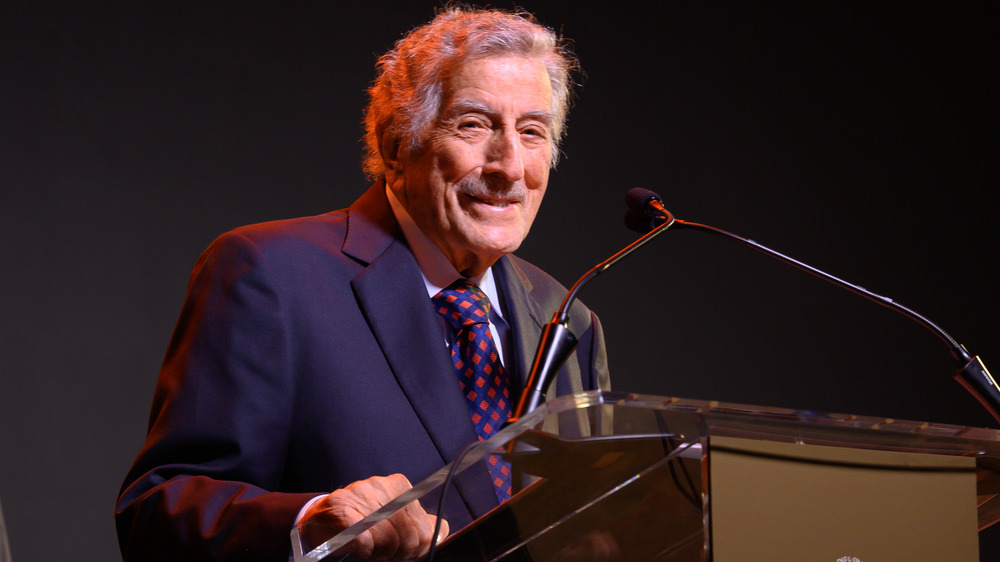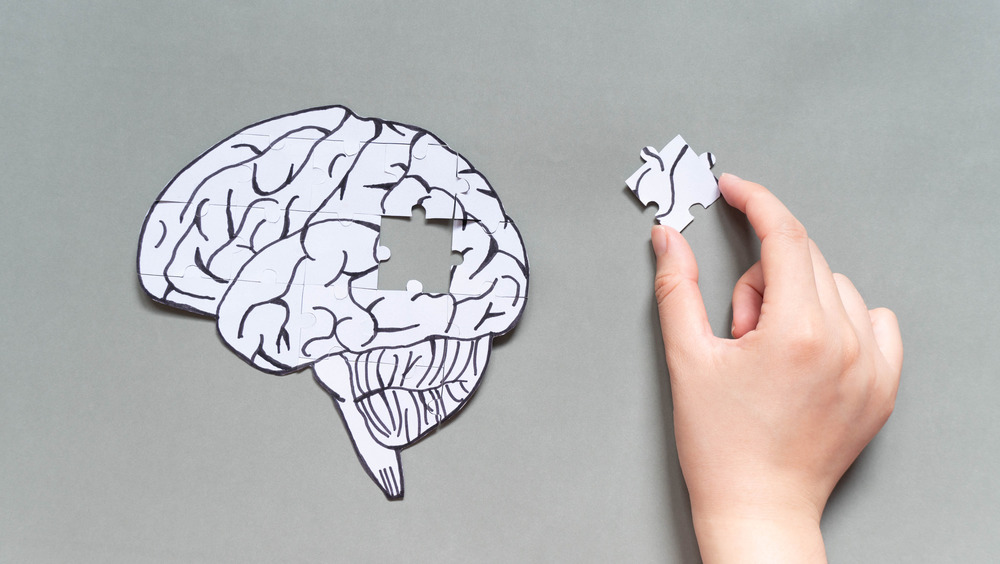The Truth About Tony Bennett's Alzheimer's Disease Diagnosis
Legendary singer Tony Bennett and his family have chosen to make his diagnosis of Alzheimer's disease public, in a lengthy profile in AARP. Though he was diagnosed four years ago, Bennett's family has kept the news private, until now. "But, obviously, you know, as long as things have progressed, it becomes more and more obvious when you interact with Tony that there's something up. And so, it just seemed like now was the right time," his wife, Susan Benedetto, told CBS This Morning.
Bennett first noticed symptoms in 2016 when, one night after performing, he couldn't remember the musicians' names, said Benedetto. At the time she dismissed it as a normal part of aging, but Bennett insisted something wasn't right.
According to the Alzheimer's Association, the disease progresses as time passes, with symptoms of memory loss and recall of even simple tasks growing worse. There is no cure, and treatment focuses on managing symptoms and slowing the progression.
Unlike many Alzheimer's patients, Bennett is still able to recognize and remember his wife and family members. And he still sings twice each week, preparing himself for a show in case someone should call with an opportunity. "No cue cards. He sings for about an hour or 75 minutes, sings the whole show, because if somebody calls up and says, 'Hey, there's a theatre. And you can come sing,' he'll be ready," said Benedetto.
Memory loss is an early symptom
Gayatri Devi, M.D., is the neurologist who diagnosed Bennett. She told AARP that he is a remarkable example of an Alzheimer's patient. "He is doing so many things, at 94, that many people without dementia cannot do. He really is the symbol of hope for someone with a cognitive disorder," Dr. Devi said.
The Alzheimer's Association reports that there are more than 5 million people in the U.S. living with Alzheimer's disease and that number is expected to increase as the second half of the baby boomer generation ages. The main risk factor for Alzheimer's is age, with those over 65-years-old most susceptible.
An early symptom is having problems remembering something recently learned. That's because Alzheimer's first impacts the portion of the brain that affects short-term memory. AARP says certain habits can help maintain brain health as we age. These include socializing with friends and family, practicing stress management techniques, exercising, getting good sleep, eating a healthy diet, and strengthening the mind through brain challenges.
Bennett has been committed to many of these, which may explain the slow progression of his disease. Though she admits things can be frustrating, Benedetto said she considers her family lucky. "We are so much more fortunate than so many people with this diagnosis."


